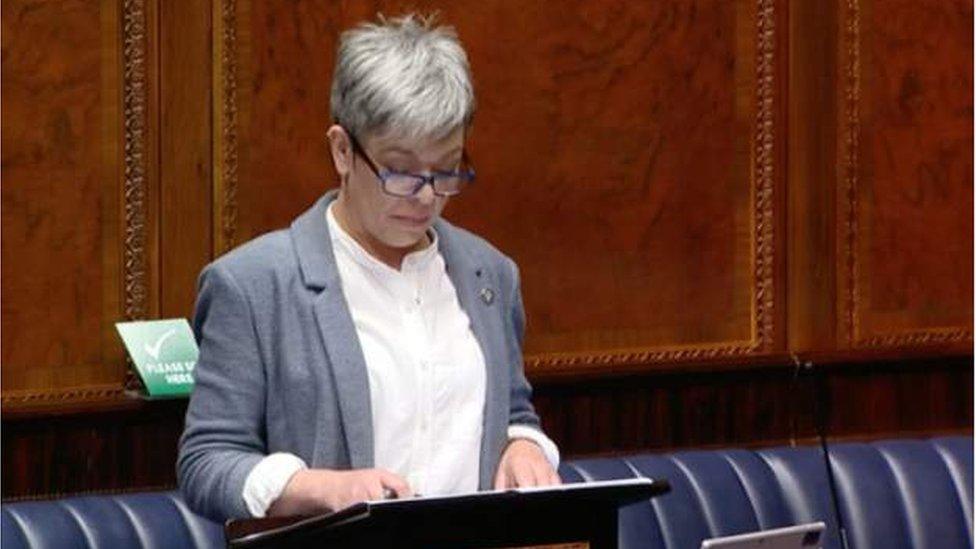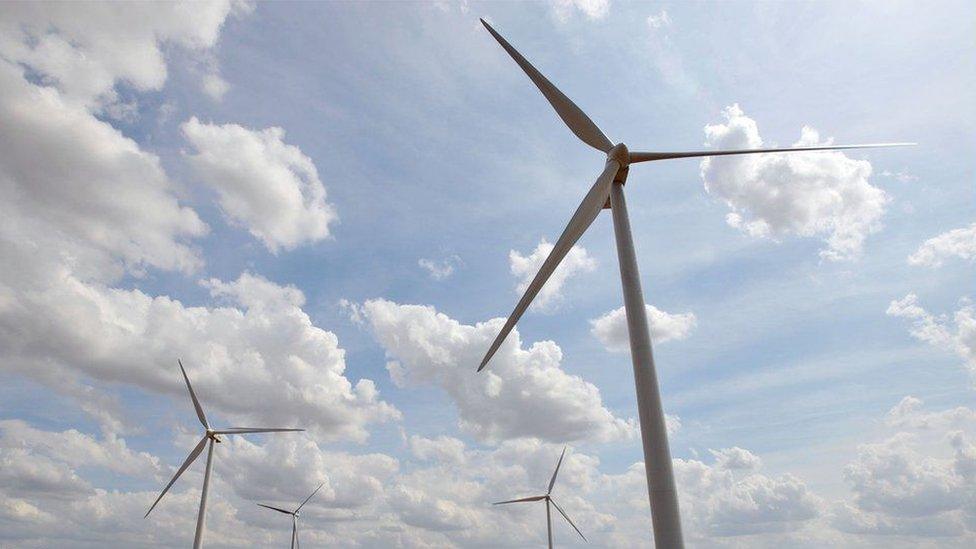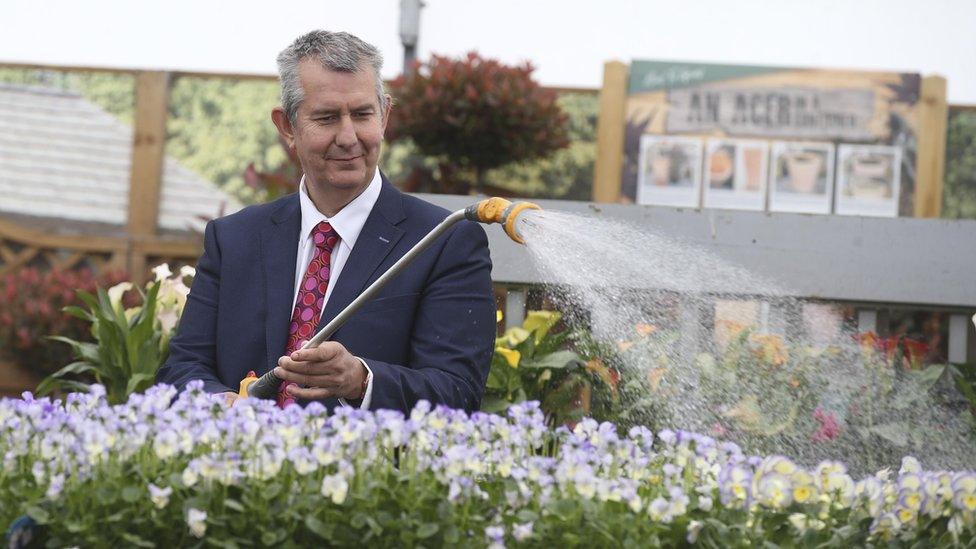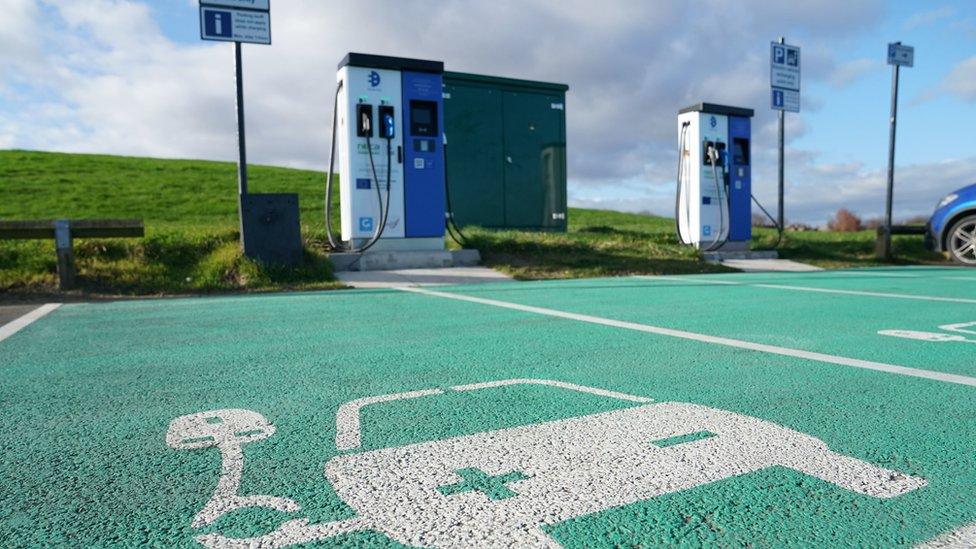Climate bill will be ruination of NI agriculture, says UFU
- Published

Cattle produce methane, which makes up much of the emissions in the farming sector
The Ulster Farmers' Union (UFU) has said a climate bill supported by most of the Stormont parties will be the "ruination" of the agriculture industry in Northern Ireland.
The bill sets a binding target of net-zero carbon emissions by 2045.
The union commissioned a report into the effect the bill's target would have on agriculture.
The report, carried out by KPMG, projects that the target could lead to the loss of 13,000 jobs.
It also warns of a huge cut to livestock numbers and the loss of billions of pounds in economic output.
The legislation was drafted by an organisation called Climate Coalition NI and is being taken forward in the name of Green Party leader Clare Bailey.
Ms Bailey said she understood the concerns that farmers had but did not believe the effect of her bill would be as harsh as the report suggested.
What is climate change?
It is supported by Sinn Féin, the Ulster Unionists, the Alliance Party, the SDLP and a number of independents - only the Democratic Unionist party (DUP) has not signed up.
Victor Chestnutt, the UFU president, said the report was shocking and that it showed the "rural way of life will disappear beyond recognition".
"Farmers are going to have to change to address climate change to reduce our emissions on farm - we fully take that on board," he said.
"But doing it in the way of the private member's bill will cause complete wipe out to our rural communities.
"An 86% reduction in cattle and sheep production would completely decimate Northern Ireland's agri-economy.
'Make global problem worse'
Another climate bill being taken forward by Agriculture Minister Edwin Poots sets a lower target of an 82% cut in emissions by 2050.
Mr Chestnutt said the earlier deadline and the more ambitious target in the private member's bill would have a huge impact on farmers.
"The targets for 2050 are very challenging but to try to speed that up, to try to reduce our emissions even more so at a faster rate, would completely wipe our industry out.
"The problem is that this will mean that we off-shore our emissions - food will have to brought in from the rest of the world.

Clare Bailey has defended her climate bill amid criticism from farmers
"So importing will add to the pressure on climate change rather than take away from it.
"We need to make sure that we get our targets right because we will just cause carbon leakage, which would make the global problem even worse."
'Start building sustainability'
Ms Bailey said there was limited data available for drawing up a report such as that commissioned by the UFU.
"This report is analysing the Climate Change Commission's limited projections because of our lack of baseline figures in Northern Ireland," she said.
"There are a lot of other alternatives that we need to be looking at as well to mitigate against such drastic herd reductions.
"Agroecology, for example, nature friendly farming, for example - all these things need to be factored in.
"And the report shows that we have a long way to go to get the information we need to start building sustainable pathways for the future."
Related topics
- Published10 May 2021

- Published27 March 2021

- Published23 March 2021

- Published22 March 2021
